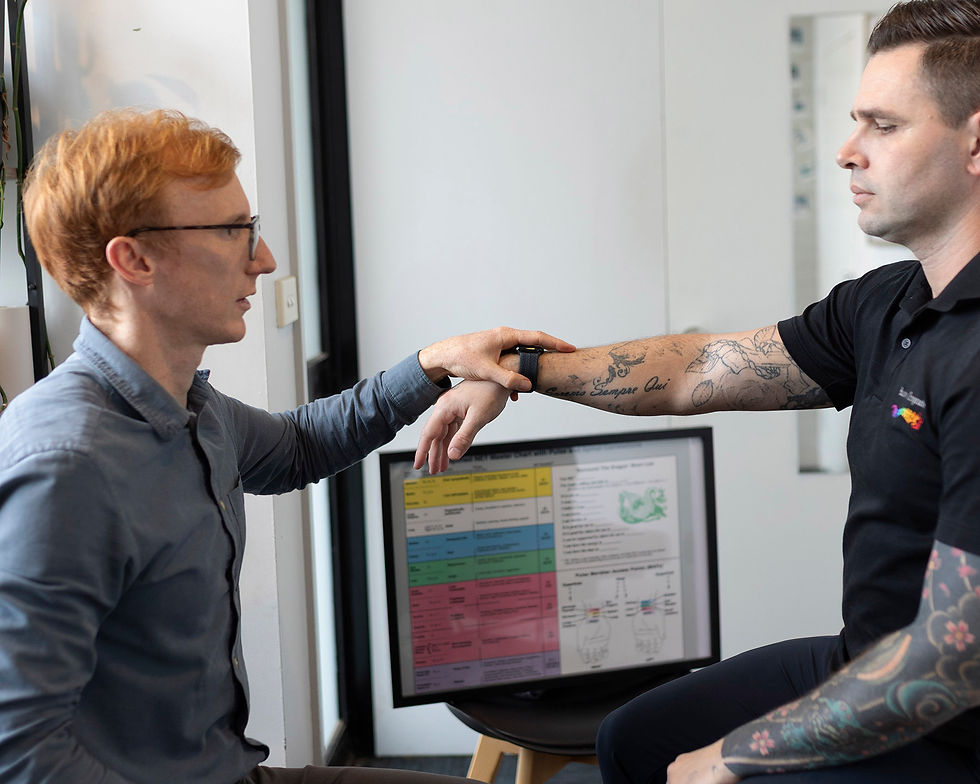Back Yourself in Retirement
- Dr Angeli Cherubim

- Mar 26, 2024
- 3 min read
Updated: Jul 17, 2024
Poor Posture & Pain
A lifetime of poor posture can start a progression of symptoms in the average adult. It can start with ...
Fatigue - your muscles have to work hard just to hold you up if you have poor posture. You waste energy just moving, leaving you without the extra energy you need to feel good.
Tight, achy muscles in the neck, back, arms and legs - by this stage, there may be a change in your muscles and ligaments and you may have a stiff, tight painful feeling. More than 80% of the neck and back problems are the result of tight, achy muscles brought on by years of bad posture.
Joint stiffness and pain - at risk for "wear and tear" arthritis, or what is termed degenerative osteoarthritis. Poor posture and limited mobility increase the likelihood of this condition in later years.
Good Posture & Aging Poor posture extracts a high price as you age because it can:
Limit your range of motion - muscles can be permanently shortened or stretched when a slumped over position becomes your normal position. Muscles and ligaments that have been shortened or stretched no longer function as they should.
Increase discomfort and pain - it can often cause headaches and pain in the shoulders, arms, hands and around the eyes resulting from a forward-head position. Rounded shoulders can trigger the headaches at the base of your skull where the shoulder muscles attach.
Create pain in the jaw - a forward-head position can lead to jaw pain. This kind of pain known as TMJ (temporomandibular joint disease) was once considered only a dental problem. Today we know that TMJ pain also may be caused or aggravated by faulty posture.
Decrease lung capacity - reducing the amount of oxygen in your body can decrease the space in your chest cavity, restricting efficient functioning of your lungs.
Cause low back pain - one of the most common consequences of bad posture. For people over 35, low back pain is often interpreted as a sure sign of age, although it may have been developing since childhood.
Cause nerve interference - your spine is the basis of posture. If your posture is bad, your spine can be misaligned. Spinal misalignment may cause interference in nerve function.
Affect proper bowel function - even this important bodily task may be affected by faulty posture. If you have a rounded shoulder, head-forward posture, it may affect your bowels. If your spine arches and sways forward, your intestines may sag and cause constipation.
Make you look older than you are - when you are slumped over, or hunched over, not standing straight, you can add years to your appearance.
Lifestyle Tips for Lifelong Good Posture
Keep your weight down - excess weight, especially around the middle, pulls on the back, weakening stomach muscles.
Develop a regular program of exercise - regular exercise keeps you flexible and helps tone your muscles to support proper posture.
Buy good bedding - a firm mattress will support the spine and help maintain the same shape as a person with good upright posture.
Pay attention to injuries from bumps, falls and jars - injuries in youth may cause growth abnormalities or postural adaptations to the injury or pain that can show up later in life.
Have your eyes examined - a vision problem can affect the way you carry yourself as well as cause eyestrain.
Be conscious of where you work - is your chair high enough to fit your desk? Do you need a footrest to keep pressure off your legs?
Straighten Up and Stay Healthy!
If you follow these practices, but still feel pain related to specific activities, call us at Rainbow Chiropractic 52821200 or email us at info@rainbowchiropractic.com.au





Comments